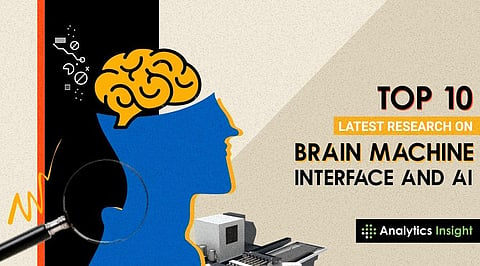

The Brain-Machine Interface or BMI is a technology that might take us one step closer to mind reading. BMI is a device that converts information from the neurons and communicates it to an external machine to be controlled. Combined with the knowledge of neuroscience, signal processing, and machine learning, this technology is touted as one of the most important tech breakthroughs of this decade.
Human brains have several neurons, individual nerve cells linked to each other via dendrites and axons. Every time we think, feel, or perform a movement, our neurons are put to work. The Brain Machine interface is a study that captures this neural process to control external software and hardware. Though the technology is at its primary stages, these are the current possibilities of the Brain-Machine Interface.
1. Brain-controlled wheelchair: A technique to ease the life of disabled people. With concentration, users will be able to navigate the wheelchair through familiar environments indoor.
2. Brain-controlled Robotic ARM: A brainwave sensor is used to capture brain signals every time the user blinks, concentrates, meditates to put to use. The Robotic Arm is moved with an EEG sensor based on the brain data collected.
3. Brain Keyboard: Oftentimes, paralyzed people fail to communicate with the surrounding environment. But that can be solved with a Brain Keyboard. EEG sensors will read the eye blink and the system will translate the text on display.
4. Brain-controlled Helicopter: Can you imagine flying a helicopter with your brain? It's possible. The helicopter can fly according to the pilot's concentration and meditation, which will navigate the helicopter up and down.
5. Brain-controlled password authentication: EEG can be applied in biometric identification as brain signals and patterns are unique for every individual.
According to the latest developments, Brain-Machine Interface can impact the way people behave, go on wars, and Alzheimer's is treated. With the application of technologies like IoT, BMI and AI can collaborate in many interesting ways.
1. Sri Amit Ray, a notable AI scientist, explained how Brain-Machine Interface can be put to work for Compassionate AI in his book Compassionate Artificial Superintelligence AI 5.0. Readers and experts believe that this path-breaking research will contribute to great advancements in the future.
2. MIT's Computer Science and Artificial Intelligence Laboratory and Boston University are conducting research on the brain and cognitive science field to create a feedback system to correct robot mistakes instantly by just using their brains.
3. Max Planck Institute for Intelligence Systems in Germany is working on Neurophysiological causes of performance variations in Brain-Machine Interfaces.
4. In an effort to aid Spino-Cerebellar Ataxia sufferers, Johns Hopkins University, a neuroengineering lab is focussing to develop this technology.
5. Biomedical Functional Imaging and Neuroengineering Laboratory of Carnegie Mellon University is using this technology on robotic arms and thought decoders.
6. Elon Musk's Neuralink is working with a team to develop implantable brain-machine interfaces.
7. University of Tokyo's Life Science Center of TARA was awarded at the Annual BCI Award, 2016 for their study – A learning-based approach to artificial sensory feedback: intracortical microstimulation replaces and augments vision.
8. The same award in 2017 went to the Department of Health Sciences and Technology, Aalborg University in Denmark for Center for Sensory-Motor Interaction's contribution on Wrist and Finger Movements in a Human with Quadriplegia.
9. Tsinghua Biomedical Engineer Team from China is actively conducting research to enable an independent brain-based communication channel and sensors with the environment.
10. The startup created by the Co-founder of Braintree, Kernel, is also working towards improving human cognition.
Join our WhatsApp Channel to get the latest news, exclusives and videos on WhatsApp
_____________
Disclaimer: Analytics Insight does not provide financial advice or guidance. Also note that the cryptocurrencies mentioned/listed on the website could potentially be scams, i.e. designed to induce you to invest financial resources that may be lost forever and not be recoverable once investments are made. You are responsible for conducting your own research (DYOR) before making any investments. Read more here.
